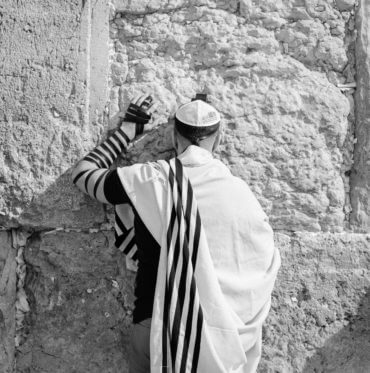
How to Fit An Accounting of the Soul Into Your Busy Elul
I was listening to a podcast the other day about the importance of maintenance (in business, specifically, but also in all areas of life), and how easy it is to drift off course incrementally if you’re not paying attention.
This is something that I find directly relevant to my life as an Orthodox Jewish woman. My hectic daily routine can be full of mitzvot but not necessarily full of mindfulness or connection, and if I’m not paying attention it’s easy to develop routines that are more a result of habit than intention.
In an ideal world, I would do a cheshbon hanefesh, a personal accounting, each night. I would think about my day, where I succeeded, where I need to improve, and make a plan to do better for the next day.
But, spoiler alert, it is not an ideal world. The natural ebb and flow of the year, with seasons of increased activity (holidays, summer, major life events) and others that are more calm, means that there will invariably be times when I am unable to keep up with my daily accounting.
I used to feel really defeated about my inability to do a consistent daily cheshbon hanefesh. It felt like something that was a nice idea, but practically unattainable in my busy life. I considered it a win if I collapsed into bed with both my face washed and teeth brushed. How would I make time for a daily review as well? Who had the energy?
Three things helped me realize that it was not as inaccessible as it seemed.
The first was reframing the way it needed to be done. I was imagining that the cheshbon hanefesh needed to be this substantial review, and done at night. I realized it could be a 3-5 minute review, and that morning was a much better time for me than evening.
The second thing was finding a partner to make me accountable for it. In the past I have had a weekly ten-minute phone meeting with a friend. Knowing that I would have to report my successes, or otherwise, helped keep my goals more present in my mind.
The third thing was learning that when time passes without doing this maintenance, I could just start back up again when I was able to, and to not view the lull as a failure, but just as part of the flow of life.
Through making a somewhat regular cheshbon, I found that I was able to accomplish much more than I had previously thought I could.
For instance, I’ve always had a strong drive to be creative, but as my family grew, I found it, unsurprisingly, much harder to make time for my creative pursuits.
When I would see other people’s creative successes I felt jealous. The times when I would get to work on a creative project always seemed to be at the expense of other responsibilities (like laundry and dishes), which made my life feel more chaotic.
This wasn’t just an issue of professional frustration, it was me feeling like I wasn’t using abilities I had been given, not realizing my spiritual potential.
I decided to use a cheshbon to make a dent in this frustration. I set daily, weekly, and monthly goals (practice every day, write once a week, submit an article to a major publication once a month), and I kept in touch with a friend to stay on track with these goals.
Just like before, there were busy times of year when I fell behind, but because of keeping a regular accounting, it was much easier to get back on track. Making clear goals instead of just having a vague desire to be more creative was also crucially helpful.
It’s been around five years since I started keeping a cheshbon of my creativity, and even though the laundry and dishes have increased, I no longer find them a barrier to fulfilling my creative needs. I find it easier to celebrate the successes of my friends because I know I am working on my own projects at a rate that is appropriate for my life.
I follow the same idea for my end of year cheshbon. I look at areas of my life, like my relationship with family, with myself, and with G-d, and think about where I’d like to make improvements. Then I make small goals and do my best to check in with myself (or someone else) on how I’m doing with those goals.
Some years I do better than others, but it’s a comfort to know that if there’s a year (or two or three) where I have a hard time keeping up, I can always reconnect with my cheshbon hanefesh to get back on track.
If you found this content meaningful and want to help further our mission through our Keter, Makom, and Tikun branches, please consider becoming a Change Maker today.






